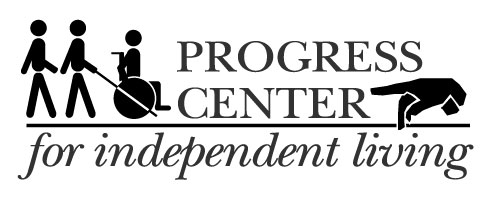Progress Center for Independent Living is holding our 2019 Liberty Gala on Thursday, October 24, 2019. The celebration will be at the Elmcrest Banquet Hall in Elmwood Park, Illinois.
We invite you to join us.
For more than 30 years, Progress Center has provided people with disabilities with the tools and resources to be independent in their own communities. We invite you to be a sponsor of this event. At the Gala on October 24, we will celebrate the success and history of Progress Center. We have much to celebrate. In the past year, Progress Center has:
- Built a Youth Transition Program
- Expanded our Personal Assistant Recruitment and Referral Program
- Organized a new Peer Support and Art Group
- Launched an Employment Club
- Joined a coalition working to put 43 people with disabilities and their families into homeownership
In addition to celebrating our own work, we will honor the work of individuals and organizations that are making a difference in the disability community.
This year, Progress Center will honor:
The Illinois Telecommunications Access Corporation
Illinois Attorney General Kwame Raoul
Disability Rights Attorney Andres Gallegos of Robbins, Salomon & Patt, Ltd
Univision Anchor Enrique Rodriguez will serve as the Event EmCee.
Progress Center for Independent Living is part of a network of 22 Centers for Independent Living in Illinois. Founded in 1988, Progress Center is a non-profit, non-residential service and advocacy organization operated by and for people with disabilities in our service area of suburban Cook County. Progress Center is staffed by, and governed by, people with disabilities. By empowering people with disabilities to define and achieve their goals, and working together to change society, Centers for Independent Living like Progress Center help millions of people across the country.
Through the 2019 Liberty Gala, with your help, Progress Center will raise support for our current programs and develop new resources for people with disabilities today, and in the years to come.
What: The Progress Center 2019 Liberty Gala
When: Thursday, October 24, 2019
Where: The Elmcrest Banquet Hall, 7370 Grand Avenue, Elmwood Park, IL 60707
For sponsorship information, please download the attached form: 2019-Liberty Gala -Sponsorship Form














